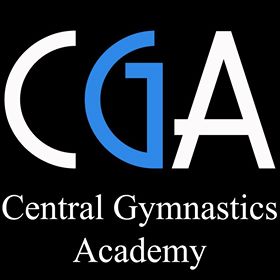PHYSICAL CONTACT & FIRST AID POLICY
There are a range of situations where coaches may come into physical contact with their participants e.g. during the course of technical coaching, a child who is upset reaching out for comfort, congratulating an athlete who has done well etc.
All forms of physical contact should respect and be sensitive to the needs and wishes of the child and should take place in a culture of dignity and respect for all. Children should be encouraged to express their views on physical contact.
The general guidance to follow is:
- In the first instance, coaching techniques are best delivered by demonstration (either by the coach, an athlete or video which can display the technique being taught).
- Educational instruction should be clearly explained with a description of how it is proposed to handle or have contact with the child before doing so. This should be accompanied by checking if the child is comfortable. Manual support should be provided openly and must always be proportionate to the circumstances.
- Coaches should not initiate unnecessary physical contact with their participants.
- Physical contact should be in a reasonable, appropriate manner in an open environment.
- Be mindful that to comfort a young person who is upset, it is not always necessary or appropriate to place an arm around them. Sitting down and listening to them, crouching down to their eye level and maybe holding their hand, can show concern for their situation.
- Sometimes children will initiate a hug or other forms of excited/happy contact with coaches and other adults, this is a normal form of human expression. It is important that adults respond to this in an appropriate manner, where they engage with the child in a positive way while not prolonging the contact or imitating it. Respond and then re-direct them into a more suitable coach/athlete form of positive expression such as a high 5 or dropping to one knee to speak to them at eye level.
- It is not the role of staff, coaches and volunteers to act as carers, if it is necessary to help a child with personal tasks e.g. toileting or changing, the child and parents should be encouraged to express a preference regarding the support and should be encouraged to speak out about methods of support with which they are uncomfortable. Staff/volunteers should work with parents and children to develop practiced routines for personal care so that parents and children know what to expect.
- Do not take on the responsibility for tasks for which you are not appropriately trained e.g. manual assistance for a child with a physical disability.
First Aid and Treatment of Injuries
- There will always be a trained and qualified first aider in the Academy during every class.
- Where practicable all parents of children have provided relevant permission and information before their child participates in sessions.
- They are aware of any pre-existing medical conditions, medicines being taken by participants or existing injuries and treatment required.
- First Aid will always be given in an open area visible to other participants and coaches, unless the injury is deemed life -threatening or clothes need to be removed to access the site of the injury or the injury unsuitable for younger participants to view, then the first aider will treat the injury in private with a responsible Adult present.
- The first aid kit is located in the Academy office.
- The Ice packs are located in the Academy's Freezer in the kitchen.
- In the event of an injury/accident an Accident Report Form must be completed and given to the person who is injured or if under 18 the person responsible for them on pick up. A copy of this Accident Report should be made an kept with Academy's Accident Report files.
- For injuries requiring a hospital visit an online Accident report form must be submitted to Scottish Gymnastics as well as completing an Accident Report form.
- In the event of a serious accident or if the participant can not continue in their class, then their emergency contact should be contacted.
- In the event of a serious accident the emergency services must be contacted.
- If CPR is required the Academy's Defibrillator (AED) will be used.
- The circumstances in which any accidents occur will be reviewed to avoid future repetitions.
